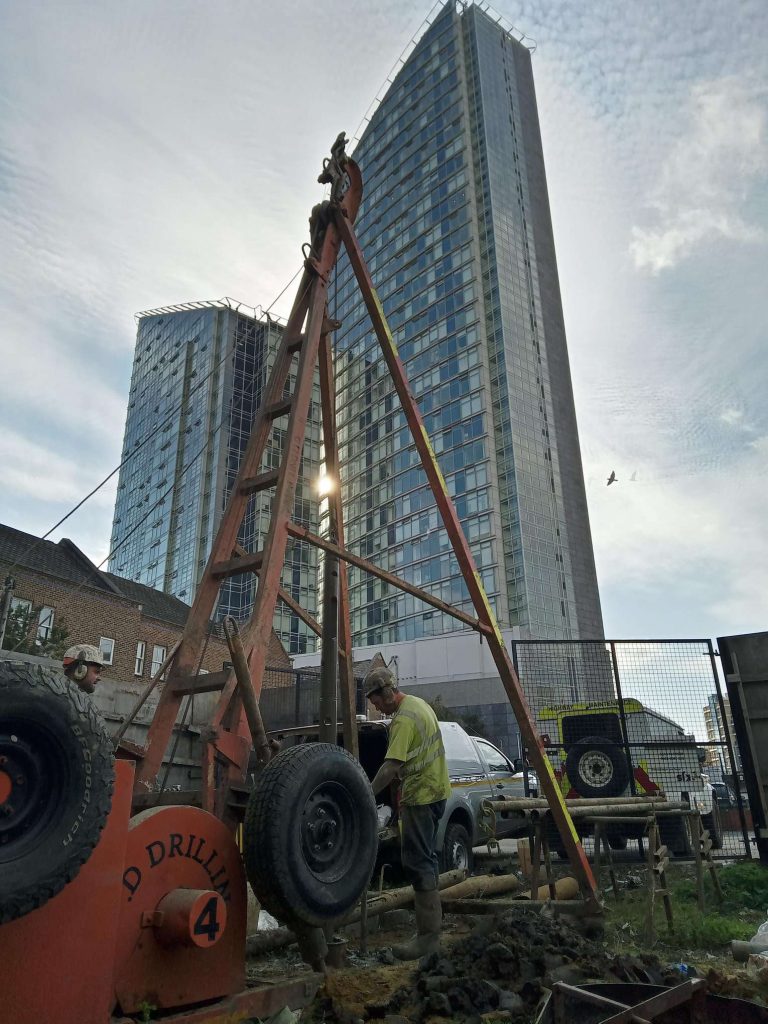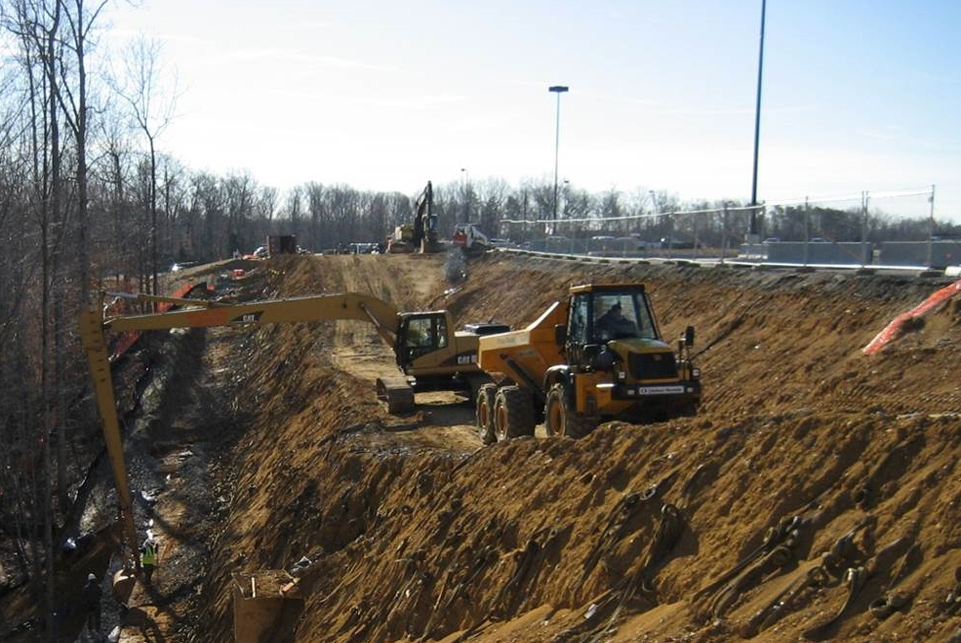Essential Top Qualities of Effective Civil Consulting Engineers
Essential Top Qualities of Effective Civil Consulting Engineers
Blog Article
Understanding the Comprehensive Function of Geotechnical Designers in Ground Examination and Dirt Analysis for Construction Projects
Geotechnical engineers are important to the success of construction projects, offering important understandings via comprehensive ground examinations and dirt analysis. Their competence in evaluating dirt behavior and employing advanced screening techniques informs crucial choices that promote structural integrity and safety and security. By determining prospective dangers and teaming up with multidisciplinary groups, these specialists dramatically affect job end results, consisting of effectiveness and cost-effectiveness. However, the intricacies of their function often prolong past these functions, triggering a much deeper exploration into the approaches they employ and the ramifications of their findings on overall job practicality.
Role of Geotechnical Engineers
The critical duty of geotechnical designers in building projects can not be overemphasized, as they supply necessary insights right into dirt habits and site conditions. These experts are charged with assessing the suitability of the ground for numerous types of frameworks, making sure safety and stability throughout the building and construction process. Their knowledge incorporates a variety of activities, including site characterization, dirt tasting, and laboratory screening, which are crucial for identifying the mechanical and physical properties of the soil.
Geotechnical designers utilize their findings to develop foundational styles that accommodate load-bearing needs and reduce dangers connected to dirt slope, negotiation, and liquefaction stability. They play a vital duty in determining possible dangers, such as groundwater changes and contamination, which can significantly affect task stability. They collaborate with architects, civil designers, and professionals to make certain that geotechnical factors to consider are incorporated right into the general style and construction stages.
Ground Investigation Strategies
Ground investigation methods develop the backbone of geotechnical design, enabling designers to get a detailed understanding of subsurface conditions. These methods are crucial for assessing soil properties, determining groundwater degrees, and identifying possible geological threats.
Typical approaches include borehole exploration, which permits the removal of dirt examples at different midsts, providing essential information for evaluation. Furthermore, in situ testing techniques, such as Common Penetration Tests (SPT) and Cone Penetration Examinations (CPT), are used to assess soil toughness and density straight in the ground.
Geophysical techniques additionally play a considerable duty in ground examinations. Strategies such as seismic surveys and electrical resistivity tomography help assess subsurface qualities without comprehensive excavation. geotech engineer. These non-invasive methods are particularly valuable in huge or delicate locations where disturbance must be reduced
Additionally, exploratory trenches can be excavated to aesthetically examine soil layers and identify any kind of anomalies. Each of these methods contributes distinct understandings, permitting geotechnical designers to develop accurate site evaluations and inform layout decisions. In recap, a combination of these ground examination techniques is crucial for successful building and construction jobs, making sure safety and security and architectural integrity.
Dirt Analysis Methods
Soil analysis methods are crucial for comprehending the chemical and physical residential or commercial properties of soil, which directly affect the design and building and construction of structures and various other frameworks. Numerous strategies are utilized to evaluate dirt features, ensuring that geotechnical engineers get exact data for notified decision-making.
One generally made use of technique is grain size analysis, which figures out the circulation of fragment dimensions within a dirt example. This is crucial for classifying soil kinds and forecasting their behavior under lots. Another vital technique is Atterberg limits testing, which evaluates the plasticity and dampness web content of fine-grained soils, supplying understandings right into their engineering residential or commercial properties.

Area tests, such as Common Infiltration Examinations (SPT) and Cone Infiltration Examinations (CPT), offer beneficial in-situ data relating to dirt toughness and stratification. Jointly, these soil analysis methods create the foundation of geotechnical examination, permitting engineers to create risk-free and effective structures customized to the specific conditions of the website.
Risk Mitigation Strategies
Applying reliable threat mitigation techniques is important for geotechnical engineers to address prospective obstacles in building and construction jobs. These techniques are essential in determining, assessing, and taking care of risks connected with soil conditions, website security, and groundwater changes, which can negatively affect task end results.
One key strategy includes performing comprehensive site examinations that make use of sophisticated geophysical strategies and detailed soil tasting. By acquiring exact information on subsurface problems, engineers can make informed choices on design and building and construction methods. In addition, utilizing predictive modeling devices permits the simulation of different circumstances, enabling designers to foresee possible problems and execute precautionary procedures.
Additionally, establishing clear this content interaction channels amongst job stakeholders promotes a collective approach to run the risk of administration. Regular updates and appointments ensure that all celebrations know the advancing website conditions and can adapt their approaches appropriately.

Influence on Building And Construction Jobs
The performance of threat mitigation techniques directly influences the total success of construction tasks. Geotechnical engineers play a pivotal role in this domain name, as their knowledge in ground investigation and soil analysis informs essential choices throughout important source the construction procedure. By precisely evaluating soil conditions and determining prospective dangers, these experts enable project groups to devise effective options that decrease threats connected with ground instability, water infiltration, and various other geotechnical obstacles.
The impact of thorough geotechnical evaluation is obvious in numerous facets of construction jobs, consisting of cost management, task timelines, and architectural integrity. Early identification of concerns permits for timely treatments, minimizing pricey delays and spending plan overruns. An extensive understanding of site conditions improves the layout and design procedure, ensuring that frameworks are constructed to withstand ecological pressures and prospective all-natural catastrophes.
Eventually, the contributions of geotechnical engineers are important to the successful implementation of construction projects. Their work not only fosters safety and conformity with laws yet also boosts the long-term sustainability of structures, making sure that they execute successfully throughout their designated lifespan. The collaboration between geotechnical groups and other stakeholders is essential for attaining ideal end results in construction endeavors.
Conclusion
In verdict, geotechnical engineers perform a crucial feature in building and construction tasks via detailed ground investigations and soil analyses. Their proficiency in assessing soil habits, using various examination methods, and executing his response danger reduction methods considerably adds to the structural stability and security of developed environments. By teaming up with multidisciplinary groups, these experts improve job effectiveness and make certain compliance with safety and security requirements, eventually bring about effective building end results and decreased prospective risks.
Geotechnical engineers are indispensable to the success of building and construction tasks, giving important insights through thorough ground investigations and soil analysis.The critical role of geotechnical designers in building and construction tasks can not be overemphasized, as they offer important understandings into soil actions and website problems. Their competence incorporates a large variety of tasks, including website characterization, dirt sampling, and research laboratory screening, which are essential for determining the mechanical and physical residential or commercial properties of the dirt.
By accurately examining soil conditions and determining possible threats, these specialists enable job teams to develop reliable services that minimize risks connected with ground instability, water infiltration, and various other geotechnical challenges.
In final thought, geotechnical engineers perform a critical feature in building projects through detailed ground investigations and soil analyses.
Report this page